The formation and recognition of labor unions may have had more to do with the rise of the middle class and the greatness of America than anything else. As their decline began in earnest during the Reagan Era of the 1980’s, so did the standard of living for a large number of the American families. FDR’s New Deal during the Great Depression of the ‘30s recognized the right of workers to organize into unions, but unions have been in decline for the last 35 years. All of the following films honor the labor movement both here and abroad in one way or another, and two are directed by John Ford.
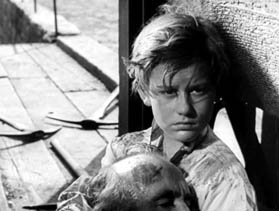 1. How Green Was My Valley (1941) with Walter Pidgeon, Maureen O’Hara, Anna Lee, Donald Crisp, and young Roddy McDowell: This Oscar winner for best picture is one of John Ford’s finest achievements. Ford won best director honors for this as well. Oscars also were awarded for photography and art direction. Donald Crisp won the supporting actor award for playing the patriarch of a large Welsh family trying to eke out a living in the coal mines. However, it is Master Roddy McDowell who steals the show. When he joins his father and four older brothers in the mines, we witness child labor depicted as matter-of-fact. Note: The look on his face as he emerges from a cave-in with his dead father in his lap is devastating.
1. How Green Was My Valley (1941) with Walter Pidgeon, Maureen O’Hara, Anna Lee, Donald Crisp, and young Roddy McDowell: This Oscar winner for best picture is one of John Ford’s finest achievements. Ford won best director honors for this as well. Oscars also were awarded for photography and art direction. Donald Crisp won the supporting actor award for playing the patriarch of a large Welsh family trying to eke out a living in the coal mines. However, it is Master Roddy McDowell who steals the show. When he joins his father and four older brothers in the mines, we witness child labor depicted as matter-of-fact. Note: The look on his face as he emerges from a cave-in with his dead father in his lap is devastating.
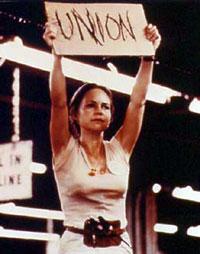 2. Norma Rae (1979) with Sally Field, Ron Leibman, and Beau Bridges: A Jewish labor organizer, played by Mr. Leibman, tries to unionize a textile factory in a Southern state. He finds one sympathetic worker, Sally Field (in her first Oscar winning role), who helps him get the ball rolling. Needless to say, management isn’t happy about this and pulls every trick in the book to defeat the effort.
2. Norma Rae (1979) with Sally Field, Ron Leibman, and Beau Bridges: A Jewish labor organizer, played by Mr. Leibman, tries to unionize a textile factory in a Southern state. He finds one sympathetic worker, Sally Field (in her first Oscar winning role), who helps him get the ball rolling. Needless to say, management isn’t happy about this and pulls every trick in the book to defeat the effort.
3. Peyton Place (1957) with Lana Turner, Lee Philips, Russ Tamblyn, Diane Varsi, Hope Lange, Lloyd Nolan, Terry Moore, and Arthur Kennedy: High school graduation, an illegitimate daughter, child molestation, incest, an illegal abortion, suicide, murder, skinny dipping, rumors galore, and the drafting of youths after Pearl Harbor all play a part in this splendid big screen soap opera about life in a small town in New England. Labor Day 1941 is celebrated in this film, and several pivotal events in Peyton Place occur on that day.
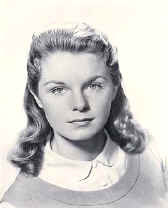
Diane Varsi
A fine cast and a gripping story make this one well worth watching. My favorite character is Norman Page, played by Russ Tamblyn, – his mother made his life so miserable that he joined the paratroopers thinking he could get killed quickly; but once he got away from his mother he found that life was so good he fought like a tiger to stay alive. Diane Varsi, as Allison MacKenzie (pictured, left), was expected to become a superstar after making this movie, but she wasn’t interested and soon left the business. Dr. Swain, superbly played by Lloyd Nolan, testifies at the murder trial and delivers an indictment of small town narrow-mindedness that is food for thought.
4. Rising Son (1990) with Brian Dennehy, Piper Laurie, and Matt Damon: Matt Damon made an impressive debut in this TNT made-for-television film. He plays the son of a domineering father who has sent him to college to become a doctor. The problem is that he doesn’t want to become a doctor. His brother has already become a lawyer because of his father and says that he hates his life. Now, another wrinkle enters the picture: his father, believably played by Brian Dennehy, loses his job as a factory foreman at an auto parts manufacturing plant. The year is 1981, the first year of the so-called Reagan Revolution. A conglomerate had bought the plant from family operation and began cutting jobs, sending jobs overseas, and paying the executives huge bonuses. In a further quest for profits, they closed the plant. Entering the ranks of the unemployed after 36 years of security is a traumatic experience for the once-proud head of the family. Veteran actress Piper Laurie appears as the wife and mother who does her best to keep her family together. This one captures the decline of the American middle class with stark frankness.
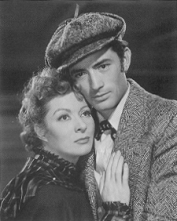
Greer Garson and Gregory Peck
5. The Valley of Decision (1945) with Gregory Peck, Greer Garson, Donald Crisp, Lionel Barrymore, Gladys Cooper, Preston Foster, Marshall Thompson, Dan Duryea, and Jessica Tandy: What a cast! This one deals with the owners of a steel mill in Pittsburgh and the problems they encounter in recognizing the union. Donald Crisp, who made a career of playing the father of poor families, finally gets to play the guy with all the dough this time. Playing against type, he even seems perfect. With him as the owner, you know this film will lean toward justice for the working class. Greer Garson and Jessica Tandy play the love interests for Gregory Peck, who plays Crisp’s oldest son. He marries the wrong one, but will he get it right? Watch for young Dean Stockwell as Peck’s son.
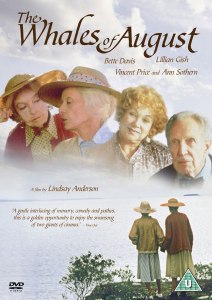
Lillian Gish, Bette Davis, Ann Southern, Vincent Price, and (not pictured) Harry Carey, Jr. are some old pros who show you how its done.
6. The Whales of August (1987) with Bette Davis, Lillian Gish, Vincent Price, Ann Southern, and Harry Carey, Jr.: This is that rare vehicle that comes along to give veteran actors a last chance to shine. We get five first-rate vintage performances from five masters who know precisely what they are doing. Regrettably, only Harry Carey, Jr., is still with us, but at least we have this lasting treasure to remember them all at the same time. Alan Price’s gorgeous music score lets you know immediately that you are about to see something special. After a brief black and white prelude, you see Miss Lillian Gish hanging clothes on the line and you know you are in good hands. It seems that the movies started with her in The Birth of a Nation in 1912, and here she is 75 years later! Basically, this is the story of two elderly sisters who spend each summer together on an island off the Maine coast. It is Ms. Gish’s house, but Ms. Davis is the one who is able to support them. The question is: Are you ever too old to get something new? Handyman Harry Carey wants to build them a picture window, but Ms. Davis thinks they are too old for anything new. Will she change her mind in time to get it installed by Labor Day?
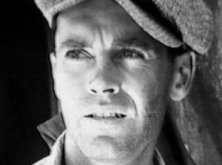
Henry Fonda
7. The Grapes of Wrath (1940) with Henry Fonda, Jane Darwell, John Carradine, Charley Grapewin, and John Qualen: I read John Steinbeck’s classic novel over a four-day period when I was in the tenth grade. It is still one of my favorite books. Director John Ford did a splendid job putting the depression era book on film.
Henry Fonda’s performances always seemed so effortless that he was underappreciated until the end of his life when he was finally awarded Academy Awards for life achievement and then best actor for On Golden Pond. As Steinbeck’s Tom Joad, Mr. Fonda was pretty near perfect.
Our current economic crisis, the Great Recession, makes The Grapes of Wrath a timely film to watch. All those who are hoping to stop the Obama administration from preventing another Great Depression need to be required to see this film. FDR’s deficit spending was so successful during his first term of office that he thought he could cut back on it at the beginning of his second term. The result was another economic downturn. Hopefully, President Obama won’t make the same mistake – incredibly, he is being pressured to stop trying to stimulate the economy!
The Grapes of Wrath is the story of the Joad Family and its nightmarish plight during the 1930’s. Straight from prison, Tom Joad returns home to find that his family has been evicted from the farm they had lived on for generations. The Dust Bowl and depression had bankrupted the family, and the bank foreclosed. Longtime character actor John Qualen plays Muley who tells Tom Joad how he, too, lost his farm. Mr. Qualen once said that Muley was his all-time favorite role, and its easy to see why.
When Tom locates his family, he learns that they are getting ready to leave Oklahoma and go to California. Handbills have told them that work is available on the large farms there. We witness the Okies’ roadtrip across the American West on Route 66 and some of the hardships they encounter. It’s a huge family, from the grandparents on down, and not all of them survive the journey.
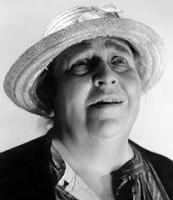
Jane Darwell
Jane Darwell plays Ma Joad, and she earned a supporting actress Oscar. Just looking at her may break your heart. You can see the Great Depression in her face and in her mannerisms. It’s a devastating performance!
I tried to show this film to my father, who was in his eighties and had experienced the depression. He stopped watching the movie before the Joads ever reached California, the promised land. Dad said it was too depressing for him. I told him that it hadn’t really begun to get bad yet; and he replied, “I can see what’s coming, and I can’t watch it.”
California was a disaster for the Joads: There had been too many handbills sent out for the number of jobs. Too many available workers meant lower pay for those who got jobs. Migrant camps were overcrowded. Company stores charged high prices. Cops were tools of the owners and harassed the workers and unemployed. Strikes and union organizers were not tolerated. Wanted by the law, Tom Joad has to leave what remains of the family. Before he goes, his sililoquy to Ma Joad is unforgettable: “Whereever there’s a cop beating up a guy, I’ll be there…”
8. On the Waterfront (1954) with Marlon Brando, Karl Malden, Lee J. Cobb, Rod Steiger, and Eva Marie Saint: Director Elia Kazan won an Oscar for directing this splendid cast; Brando won his first of two Best Actor Oscars; Ms. Saint won for Best Supporting Actress, and this was her first film; Malden, Cobb, and Steiger canceled each other out in Best Supporting Actor category, but it should have been a three-way tie; Budd Schulberg won Best Screenplay for adapting his own story; Leonard Bernstein somehow missed out on his eerie and dynamic soundtrack – this movie is a tour de force from beginning to end.
Lee J. Cobb’s Johnny Friendly – facetiously named – is the racketeer who determines who works and who does not on the waterfront. Karl Malden’s Father Barry cares about his people and tries to get the union to stand up to Friendly. Rod Steiger’s Charley Malloy is the most intelligent and educated of Friendly’s staff and is the older brother of Marlon Brando’s Terry Malloy, who “could’a been contender” in the boxing ring but had to take a fall for the racket. Eva Marie Saint’s Edie Doyle is attacted to Terry until she learns that he was responsible for setting her brother up to be killed by the mob – her brother was informing on Friendly’s racket. Leif Erickson and Martin Balsam’s government agents are trying to get Terry to “rat” on Friendly and give him a subpoena.
Rod Steiger never forgave Marlon Brando for not showing up for the filming of the “I could’a been a contender” scene in the backseat of a taxi cab. Steiger had to play to an empty seat (as Brando also did), and their conversation had to be edited together. It’s still considered one of motion pictures’ greatest scenes. By the way, the taxi was being driven by Nehemiah Persoff in an uncredited role.
This is probably Elia Kazan’s masterpiece – and he had yet to direct James Dean in East of Eden or Montgomery Clift in Wild River. Many in Hollywood never forgave Kazan for naming names during the McCarthy Era communist witch-hunt. Karl Malden respected Kazan’s creative brilliance and fought for years to get Kazan a Life Achievement Academy Award. During the presentation, many in the audience remained silent.
On the Waterfront may be considered either an apology or a justification by Kazan for informing on his motion picture colleagues. Terry Malloy testifies against Johnny Friendly and is shunned by his “friends” and not allowed to work on the waterfront. In one of the screen’s greatest endings, Terry is beaten to a pulp by Friendly and his thugs, but the union workers won’t go to work unless Terry leads them – and Terry “can’t even walk.”
by David Offutt, August 2006 (revised September 3, 2009)
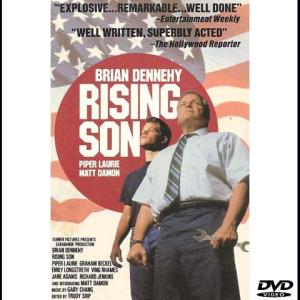
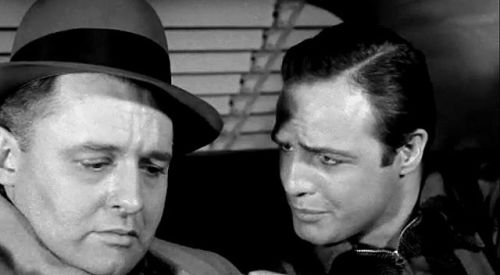



i like this
hmm… I like your writing
Hi friend, i’m indonesian. nice to meet you, if you has time please visit my blog
http://blog.unsri.ac.id/dear/welcome/mrlist/1288/
http://blog.unsri.ac.id/dear/wow/mrlist/1371/
see u in my ‘home’
(^_^)
By: dear on December 14, 2009
at 2:29 am